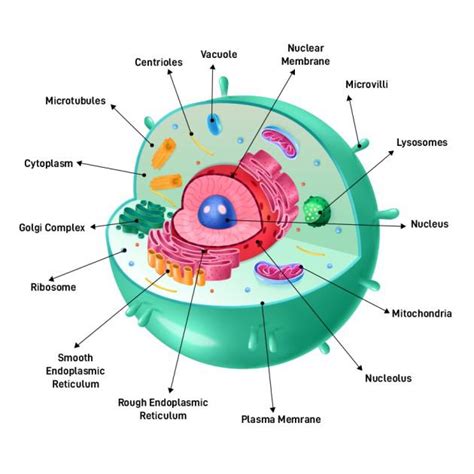Animal cells are the basic unit of life for all animals, including humans. They are responsible for a wide range of functions, including metabolism, growth, and reproduction. When animal cells are placed in different environments, they will respond in different ways depending on the conditions.

What Happens to Animal Cells Placed in Water?
When animal cells are placed in water, they will swell and eventually burst. This is because the water potential of the water is higher than the water potential of the cells. Water potential is a measure of the tendency of water to move from one area to another. The higher the water potential, the more water will move into an area.
The cell membrane is a semipermeable membrane, which means that it allows some substances to pass through while blocking others. Water is a small molecule that can easily pass through the cell membrane. When the water potential of the water is higher than the water potential of the cells, water will move into the cells. This will cause the cells to swell and eventually burst.
What Happens to Animal Cells Placed in a Hypertonic Solution?
A hypertonic solution is a solution that has a higher concentration of solutes than the cells. When animal cells are placed in a hypertonic solution, they will shrink. This is because the water potential of the hypertonic solution is lower than the water potential of the cells.
Water will move from an area of high water potential to an area of low water potential. In this case, water will move from the cells to the hypertonic solution. This will cause the cells to shrink.
What Happens to Animal Cells Placed in a Hypotonic Solution?
A hypotonic solution is a solution that has a lower concentration of solutes than the cells. When animal cells are placed in a hypotonic solution, they will swell. This is because the water potential of the hypotonic solution is higher than the water potential of the cells.
Water will move from an area of high water potential to an area of low water potential. In this case, water will move from the hypotonic solution to the cells. This will cause the cells to swell.
Applications of Animal Cell Culture
Animal cell culture is the process of growing animal cells in a controlled environment. Animal cell culture is used for a variety of purposes, including:
- Research: Animal cell culture is used to study the biology of animal cells. This research can be used to develop new drugs and treatments for diseases.
- Production of vaccines: Animal cell culture is used to produce vaccines. Vaccines are used to protect people from diseases.
- Production of antibodies: Animal cell culture is used to produce antibodies. Antibodies are used to treat diseases and to diagnose diseases.
Conclusion
Animal cells are essential for the life of all animals. They are responsible for a wide range of functions, including metabolism, growth, and reproduction. When animal cells are placed in different environments, they will respond in different ways depending on the conditions.
Animal cell culture is a powerful tool that can be used to study the biology of animal cells and to produce vaccines and antibodies. Animal cell culture has the potential to make a significant contribution to the health and well-being of humans and animals.
1. What is the difference between a hypertonic solution and a hypotonic solution?
A hypertonic solution has a higher concentration of solutes than the cells, while a hypotonic solution has a lower concentration of solutes than the cells.
2. What is water potential?
Water potential is a measure of the tendency of water to move from one area to another. The higher the water potential, the more water will move into an area.
3. What is the cell membrane?
The cell membrane is a semipermeable membrane that surrounds the cell. It allows some substances to pass through while blocking others.
4. What is animal cell culture?
Animal cell culture is the process of growing animal cells in a controlled environment. Animal cell culture is used for a variety of purposes, including research, production of vaccines, and production of antibodies.
5. What are some of the applications of animal cell culture?
Animal cell culture is used to study the biology of animal cells, to produce vaccines, and to produce antibodies.
6. What is the potential of animal cell culture?
Animal cell culture has the potential to make a significant contribution to the health and well-being of humans and animals.
